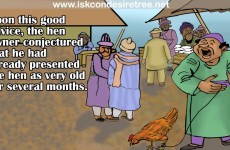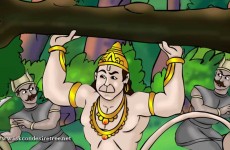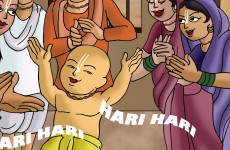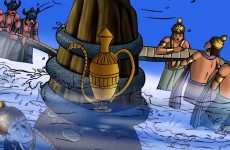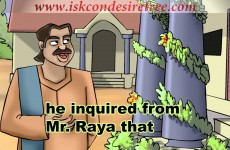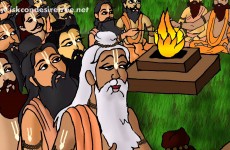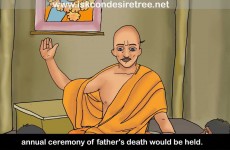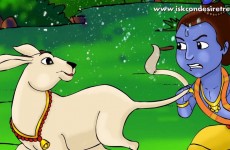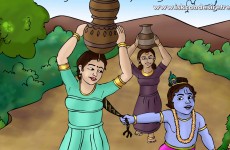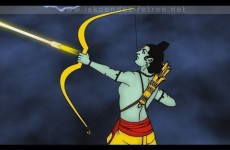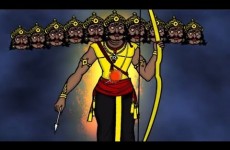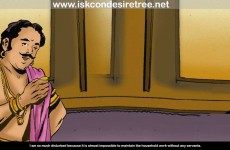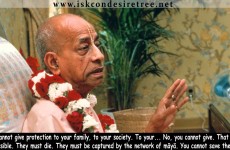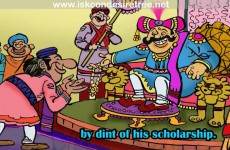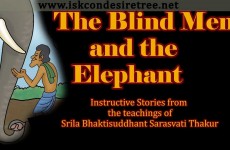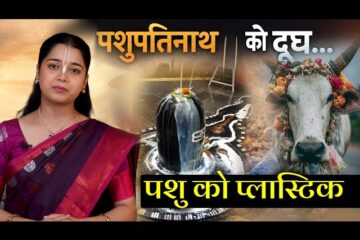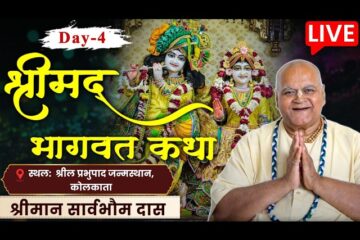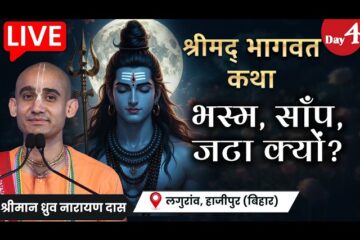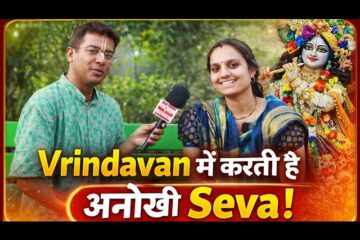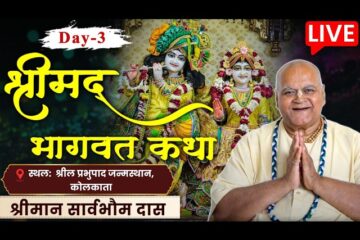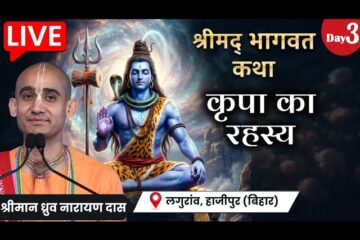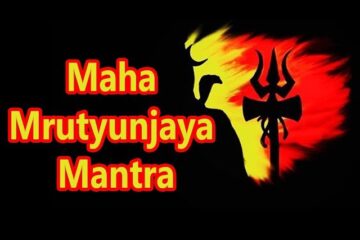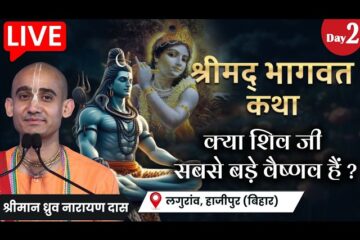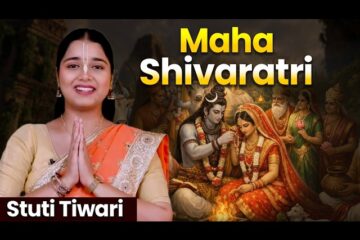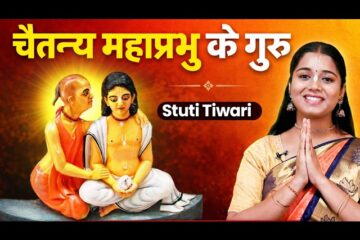Storyboard Artist: Sanjay Ghosh
Script: Madanmanjari dd (Meenakshi Pande)
Graphics: Ranjana Sawant & Umesh Modak
Audio Narration: Madanmanjari devi dasi (Meenakshi Pande)
Audio Recording & Music editing: Rachana Sule & Shilpa Gawde
Video Editing & Animation: Rachana Sule
Recording Studio: Iskcondesiretree Studio, Mumbai.
Produced by: www.iskcondesiretree.net
NARADA MUNI is exalted in Vedic texts as one of the twelve mahajanas, or great authorities on eternal truth. Details of his life and teachings are recounted in the Narada Purana, the Padma Purana, and throughout Srimad-Bhagavatam. So advanced is his level of spirituality that in these texts he is even sometimes called “Bhagavan,” a term usually reserved for the Supreme Lord, and in the Bhagavad-gita (10.26) Lord Krsna Himself says, “Of the sages among the demigods, I am Narada.”
As a preeminent representative of God, Narada Muni is often considered the original spiritual master. Srila Prabhupada states in his commentary to the Srimad-Bhagavatam (6.5.22), “The immediate spiritual master is the representative of Narada Muni; there is no difference between the instructions of Narada Muni and those of the present spiritual master.” Prabhupada further refers to Narada as “the father of devotional service.” (6.16.26)
ISKCON devotees know Narada Muni as “the eternal spiritual spaceman,” because he is described throughout the Vedic literature as a transcendental mystic who received from Krsna the ability to traverse the cosmos, delivering the Hare Krsna maha-mantra to sincere souls and instigating advancement on the spiritual path.”Instigating” may seem the wrong word to describe a celestial sage, but Narada is famous for pushing people to the limit, forcing them to make decisions that enable them to advance in Krsna consciousness.Narada also serves as an instigator in Lord Krsna’s pastimes. One example occurs around the time of Krsna’s birth. When the demon Kamsa hears a voice from the sky, telling him that Devaki’s eighth child (Krsna) will kill him, it is Narada who instills Kamsa with fear that any of Devaki’s children might be his enemy. Narada thereby persuades Kamsa to kill all of Devaki’s children. Narada does this to accelerate Krsna’s appearance and enhance Kamsa’s reputation as a demon, causing Krsna to eventually kill him and establish righteousness in society. (This was all done under the Lord’s mysterious internal potency. Later, Lord Krsna brought the children back to life.) Another example of Narada’s instigative powers is seen in his exchange with Princess Rukmini, to whom he elaborately describes Krsna’s unsurpassed beauty and superlative qualities. Upon hearing Narada’s description, Rukmini becomes infatuated with Krsna, giving her heart to Him in total surrender. She is thus unable to marry Sisupala, to whom she was promised. Narada’s “meddling” leads to the unfolding of an important episode in Krsna’s manifest pastimes: Sisupala is humbled, and Krsna kidnaps and marries Rukmini. In the fulfillment of her heart’s desire, Rukmini serves Krsna as His loving wife in the spiritual realm. In yet another important episode, Narada chides Vyasadeva for not getting at the essence of Vedic knowledge in compiling the Vedic literature. Narada tells Vyasadeva that the remedy is to describe in his writing the name, form, fame, and pastimes of Krsna. Vyasadeva does so, the result being the Srimad-Bhagavatam, the cream of ancient India’s scriptural legacy.
Like/share/subscribe
Read more – http://backtogodhead.in/narada-muni-the-father-of-devotional-service/
For all comics visit:
https://www.youtube.com/playlist?list=PLhtmKWc6vRTBi6spyypj_KUkHPhFAg1VI
At your service:
www.iskcondesiretree.net

















